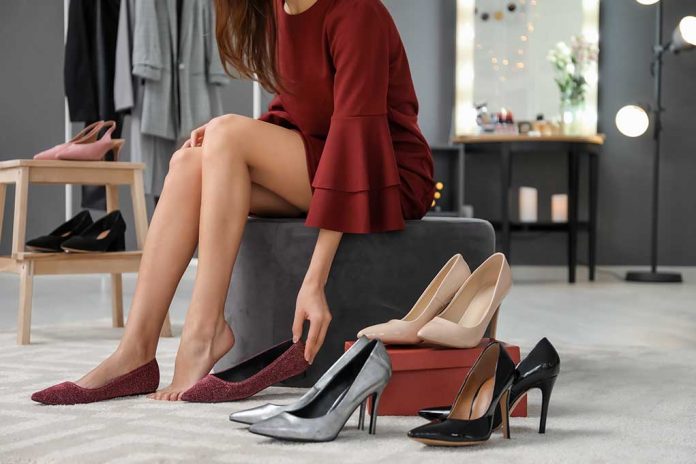
Shoes and Your Health: What You Should Wear According to Experts
(AscendHealthy.com) – Most of us spend the majority of our days with our feet clad. Whether we’re protecting ourselves from the elements or hoping to support our arches, we depend on shoes to do us more good than harm.
Not all styles are as helpful as we’d think, and even expensive running shoes often fall short when it comes to protecting posture and reducing injuries. In fact, some of their biggest selling points could actually be their greatest weaknesses. We have details below on the best and worst shoes according to science.
The Worst
The way we walk is important. We can cause ourselves all kinds of damage if we walk around too long in the wrong footwear. Many shoe styles negatively impact our gait, increasing the stress we put on our joints. Here’s a closer look at some of the worst offenders.
High Heels
These beautiful little torture devices often feel like murder on the feet — and the actual effects are nearly as terrible. Research shows consistent high heel-wearing causes the tendon and muscle tissue in the calves and heels to shrink, reduces range of motion in the ankles, induces muscle fatigue and increases osteoarthritis risks in the knees. Time reports that high heels can also contribute to lordosis, a type of curvature of the spine.
How can we prevent these problems and still look fashionable? Experts advise that we wear heels minimally and keep the heels as short as possible.
High-End Athletic Shoes
They might seem like the answer to foot and joint pain, but expensive running shoes and the like could be the culprits in many cases. According to recent studies, shoes that offer the most support are usually among the most harmful. The thick, “supportive” padding interferes with our natural gait, which changes the way our feet hit the ground. As a result, we create heavier impacts on our heels, putting a strain on leg joints.
Too much arch support can also be a problem in itself, says Time. Relying too much on arch support can weaken the muscles that hold them in place, putting some users at risk for flat feet. The effects can be so severe that an abrupt change from regular athletic shoes to bare feet can lead to pain and even increased risks of injuries.
Flip-Flops
These flimsy summer favorites offer little to no support, so most won’t contribute to weakened arches, but they can also affect how we walk. According to Time, the need to grip at the toes to keep them in place affects the length and quality of our stride, contributing to many health issues in the soles, ankles and heels. Sandals that aren’t secured well enough to the feet can cause similar problems.
The Best
We’ve often come to connect a high price tag with getting the best of the best, but when it comes to our feet, simpler might be better. Here are the options that, according to science, are usually best for us.
Walking Barefoot
Anatomically, our feet carry us just fine without any help. In fact, using our natural, unaltered gait can reduce the burden we put on lower extremity joints. Research has shown going without shoes reduces the torque we put on our knees, decreasing the risks of osteoarthritis. People accustomed to wearing shoes should transition slowly to avoid injury.
Flimsy, Soft-Soled Shoes
When we must wear shoes, being minimal is usually our best bet. Lightweight, flexible choices like Vivo Barefoot and Nike Free allow the feet to move naturally, while offering protection against the elements. Look for varieties that allow for full bending at the ball of the foot and don’t alter or impede natural stances or movements.
Keep in mind that there are exceptions to the above. For example, people with neuropathy might have heavier gaits regardless of shoe choice because of reduced foot sensation; these people may need more supportive shoes that can absorb some of the impact regardless of how it might affect their gait. Discuss any concerns about choosing the right shoes with a qualified doctor.
We have all sorts of shoe options these days, but most aren’t for our benefit. Our feet may not need as much help as we’ve been led to believe, and we could even be hurting ourselves in our attempts to improve them. Many of us can do both our feet and our pocketbooks a favor by skipping the expensive shoes and wearing options that let us move most naturally.
~Here’s to Your Healthy Ascension
Copyright 2022, AscendHealthy.com




















